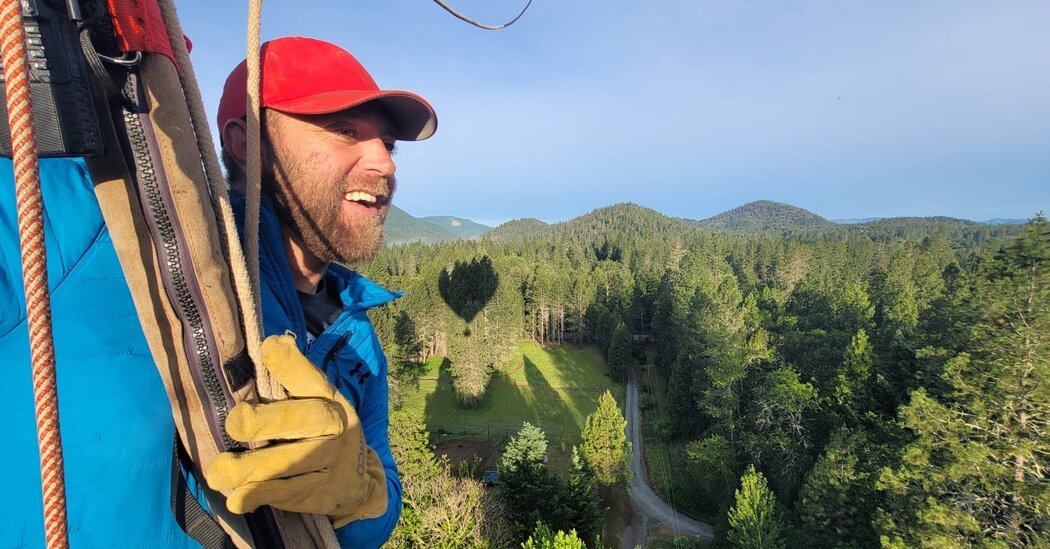Cornelius van der Walt, a lover of the sky, was as adventurous as he was responsible. Everything needed to be safe, and done in a particular way. He was the guy to trust, said John Vanca, his best friend and business partner.
When Mr. van der Walt, 37, and three others died in a hot-air balloon crash in Arizona in January, the news shocked the skydiving community and made headlines around the world.
Last week, the accident was back in the news, when the Pinal County Medical Examiner’s Office released an autopsy report that said it had found high levels of ketamine, an anesthetic that in certain doses can have hallucinogenic effects, in Mr. van der Walt’s body.
The balloon pilot did not have a prescription for the drug, the report stated. Though medical workers sometimes use it in an emergency to relieve pain, the report said they had not used it that day.
The headlines, from local newspapers to international outlets, honed on that detail: “Hot air balloon pilot had ketamine in his system at the time of a crash that killed 4, report says,” The Associated Press said.” “Pilot in deadly hot air balloon crash had ketamine in system,” said The Times of London.
But that wasn’t the full story. Two days later, the medical examiner’s office reversed itself, adding a crucial detail to its report: emergency responders had, in fact, given the ketamine to Mr. van der Walt.
New information had come to light, James Daniels, a spokesman for the medical examiner, said in an email this week.
For its initial report, the medical examiner’s office had spoken to the fire department and a hospital involved in the rescue efforts, but it had not been aware that an Air Evac crew had treated him with ketamine.
Jeremy Sammons, a spokesman for the Eloy Police Department, said it was one of their investigators who noticed a “potential discrepancy” in the medical examiner’s report.
Some news organizations updated their stories after the medical examiner changed its report. Others published new articles. But by then, Mr. van der Walt’s family and friends were already reeling.
“Immediately after the media began to report on the situation, hateful and disgusting messages were sent to various people involved via social media,” Mr. Vanca said. “All of this has caused quite a bit of emotional duress not only for the family of Cornelius, but I am sure to all of the other families involved as well.”
Mr. van der Walt was a native of Walvis Bay, Namibia, and had lived in Arizona since at least 2017, but moved around a lot. He was the founder and pilot of Droplyne Hot Air Balloon Rides. His biography on the company’s website, written in the first person, describes his love for the skies: “Home is where you park your balloon.”
Droplyne offered skydiving and hot-air balloon rides, and it was one of those rides that Mr. van der Walt was piloting on Jan. 14. Thirteen people went up in the balloon that morning, and eight of them sky-dived safely.
After they jumped out at about 10,000 feet, the balloon began to partially deflate and lose altitude around 4,000 feet, according to a report by the medical examiner.
At 2,000 feet, the balloon began to free fall at high speed and crashed, killing Mr. van der Walt and three others: Chayton Wiescholek, 28, from Union City, Mich.; Kaitlynn Bartrom, 28, from Andrews, Ind.; and Atahan Kiliccote, 24, from Cupertino, Calif., according to the Eloy Police Department. A fourth passenger, Valerie Stutterheim, 23, from Scottsdale, Ariz., was critically injured.
A problem with the bag that fills the balloon with hot air may have caused the accident, but the exact cause remained unclear, according to the National Transportation Safety Board.
The board is still investigating the case, which usually takes between one and two years from the date of the accident, Peter Knudson, a spokesman for the N.T.S.B., said in an email.
Mr. Vanca said he first met Mr. van der Walt in Namibia in 2014. They instantly realized they looked a bit alike, he said. This would become a running joke in their decade-long friendship.
“People would often ask us, mostly in the States, if we were brothers,” Mr. Vanca said.
He said Mr. van der Walt had a sense of both responsibility and adventure as well as “the ability to bring a sense of magic and wonder to the world and the people in it.”
The friends spent time together on land and in the air, just “two crazy guys in a huge hot-air balloon, laughing and blasting fire in the air above them.”
The initial autopsy report left the people who knew Mr. van der Walt unsettled. Mr. Vanca said that “Neels’s good name and impeccable record” had been brought into disrepute.
Before the Jan. 14 accident, Droplyne said its safety record had been perfect. It has halted operations since the crash.
“Neels was the lifeblood of Droplyne, and without him it just wouldn’t be the same,” Mr. Vanca said. “It pains me to say it, but Droplyne will remain closed.”

